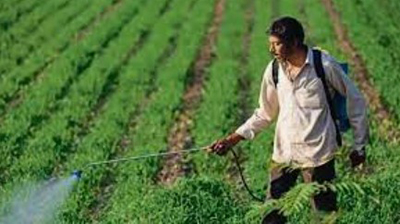Relevance: GS-3: Issues related to Direct and Indirect Farm Subsidies and Minimum Support Prices
Key Phrases: Getting Remunerative Farm income; Doubling farmer’s income; Cobweb phenomena; CACP (Commission for Agriculture Costs and Pricing).
Context
- Farm Laws were repealed by the Government to give in to demands of the protesting farmers who feared, inter alia, crony capitalism and dismantling of procurement framework which used to guarantee MSP.
- The political groundswell seen for the party at the centre in recent
elections could be utilised for pushing these reforms in a farmer friendly
manner
- Will the stalled reforms for India’s farm economy get another push?
The Farm Laws
- Farmers Produce Trade and Commerce (Promotion and Facilitation) Act, 2020: To allow trade in agricultural produce outside the existing APMC (Agricultural Produce Market Committee) mandis.
- Farmers (Empowerment and Protection) Agreement on Price Assurance and Farm Services Act, 2020: It provides a framework for contract farming.
- Essential Commodities (Amendment) Act, 2020: To remove commodities such as cereals, pulses, oilseeds, edible oils, onion and potato from the list of essential commodities.
Key Highlights
- The Centre must take necessary reforms which will lead to agriculture becoming a viable employment option.
- The centre took a bold step by privatising the loss making Air India. This though is not a political masterstroke but it makes business sense to not let the exchequer suffer more on non-core areas of governance.
- Although the government is sceptical to bring back the farm reforms on the policy table unless states themselves take a starting step regarding this.
Why the need to take the Farm Reforms?
- To utilise the opportunities presented by geopolitical developments
- The Russia-Ukraine War has dwindled the hopes of farmers in the region which is known as ‘Breadbasket of the world’
- The price of wheat and other cereals have increased steeply.
- Indian farmers can utilise these benefits to increase their income
- This would also reduce the procurement cost of the government and would be a positive development in terms of fiscal consolidation due to reduction in food subsidy bill
- To tidy up India’s inefficient food procurement and subsidy system
- To repair both the exchequer and government’s record on reforms
- It is the only workable way to “double farmer incomes
The Status Quo
- MSP has become market substitution price
- Minimum support price is supposed to be a floor price below which the market price shouldn’t fall
- For political reasons MSPs are set above market clearing prices
- This sends a wrong signal to farmers who are enticed to grow only
paddy and wheat
- This also leaves them at the mercy of government procurement agencies, which are inefficient, ineffective, and often delay payments
- Lack of transfer of market signals to farmers
- Which results in Glut and falling of prices due to cob-web phenomena (mentioned in Economic Survey 2019-20)
- Export policies are too faulty to let excess supplies drain outwards
- The loop repeats endlessly, increasing the subsidy burden on taxpayers and offering farmers no incentive to diversify into crops in demand that the market would reward with better prices.
- Mountains of subsidised foodgrain procured this way either rot or are devoured by rats. The soil, environment, water and diets get no healthier
Way Forward
- Enabling procurement agencies to operate a price stabilisation fund
- This will aid market price discovery while providing a backstop if prices fall below distress levels
- These levels need to be computed by them independently, at best under the oversight of an independent body like the Commission for Agriculture Costs and Pricing (CACP)
- Aids to farmers should be through income support by utilising the transfer mechanism in place
- From the demand side: giving choice to consumers to receive cash
transfer in lieu of Public Distribution System (PDS) foodgrains
- This will end the monetization of unwanted PDS foodgrains by beneficiaries, which is rampant throughout India
- This will reduce wastage
- Doing this will also give the Centre an idea of India’s actual food requirements.
- Revamping the payment in two distinct parts:
- A market stabilisation price
- The former should not be more than the average price in the previous year (prices fluctuate across the calendar, dropping as a harvest arrives and rising later).
- The stabilisation price should be free from political considerations.
- It should be determined by the procurement agency with CACP approval.
- The CACP could be elevated to the level of a statutory authority in which economists set prices, scientists settle matters related to science and bureaucrats oversee issues pertaining to administration,
- An income transfer.
- Which should subsume
- All farm subsidies like water, power, seed, fertilizer etc, and
- Also government schemes like PM-Kisan, Rythu Bandu, Kalia, etc.
- This should be adjusted on the basis of season leaving entrepreneurial farmers to seek returns by crop diversification over and above this benchmark level.
- Which should subsume
- A market stabilisation price
Conclusion
- These reforms could ensure farmers get the income support they deserve without disrupting the market signals necessary to sustain a healthy agricultural economy.
Source: Live-Mint
Mains Question:
Q. Suggest why farm reforms are necessary along with a suitable way forward.









